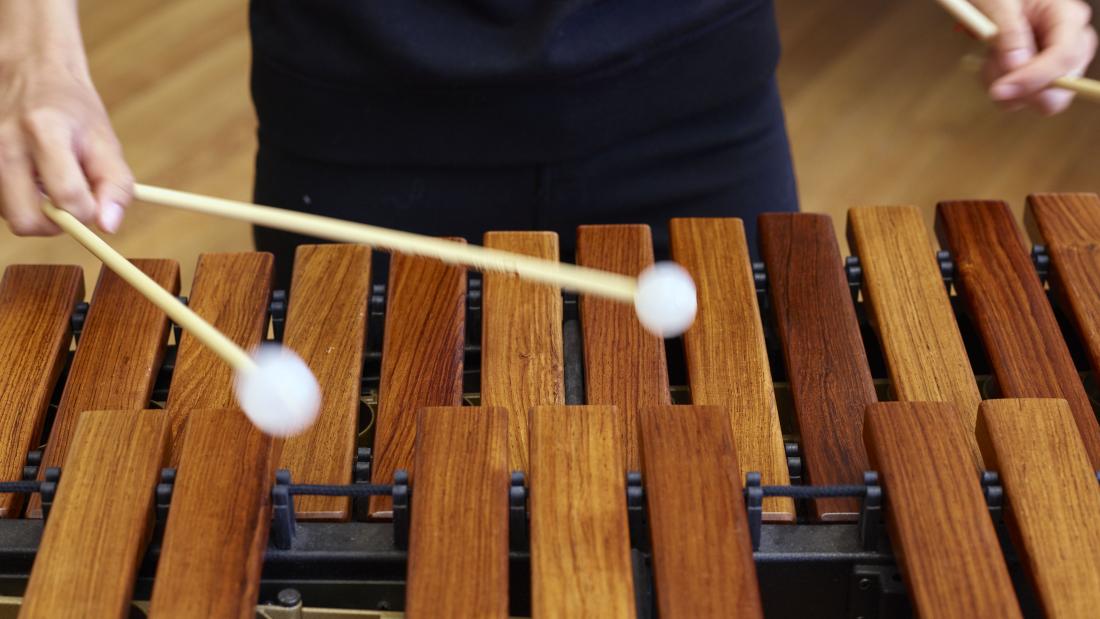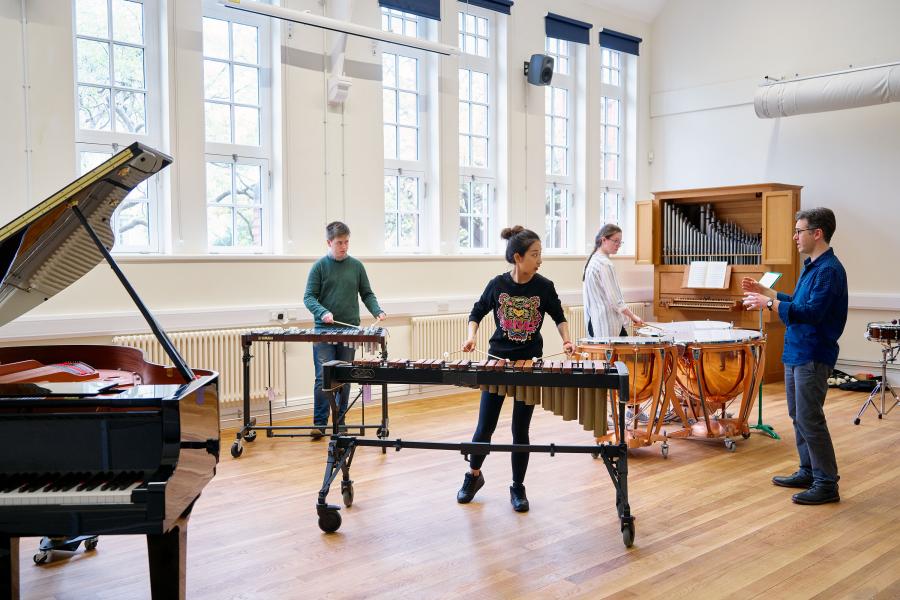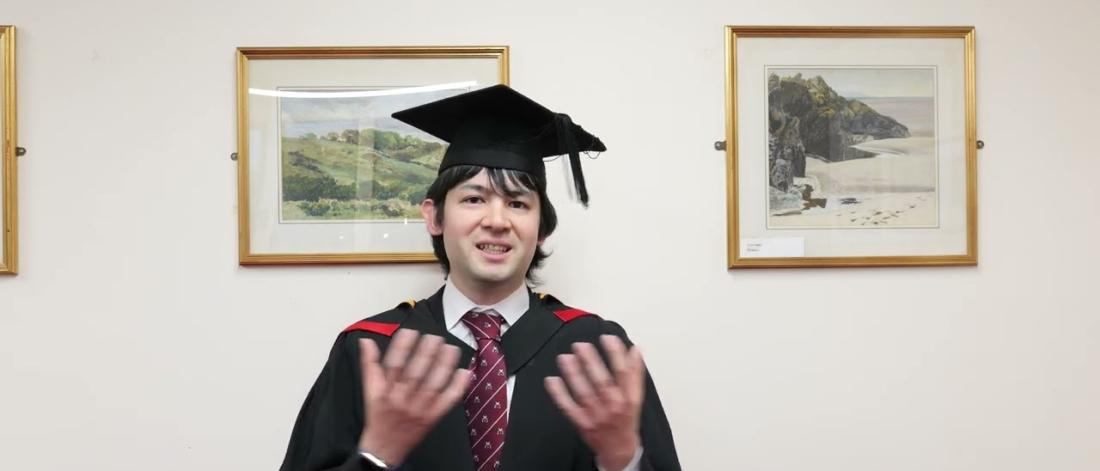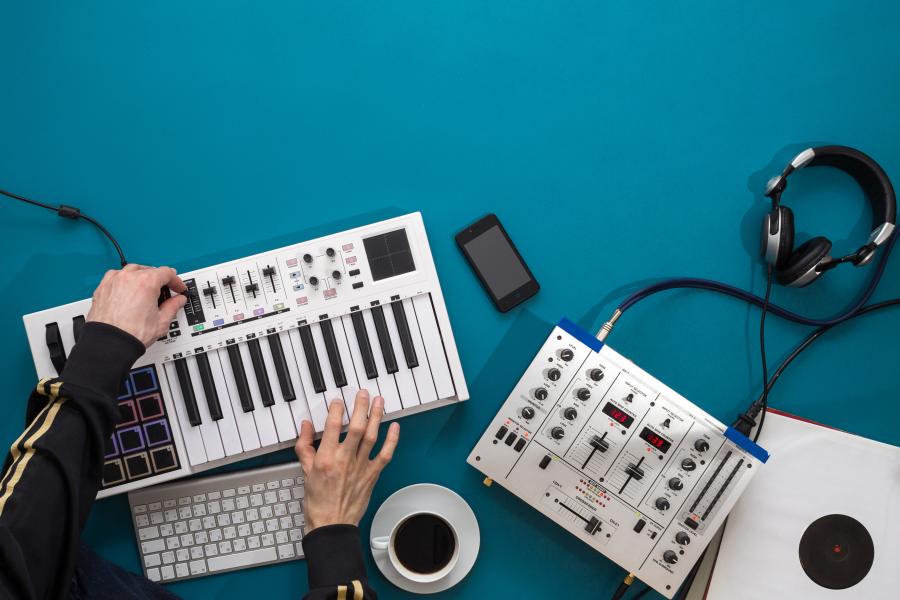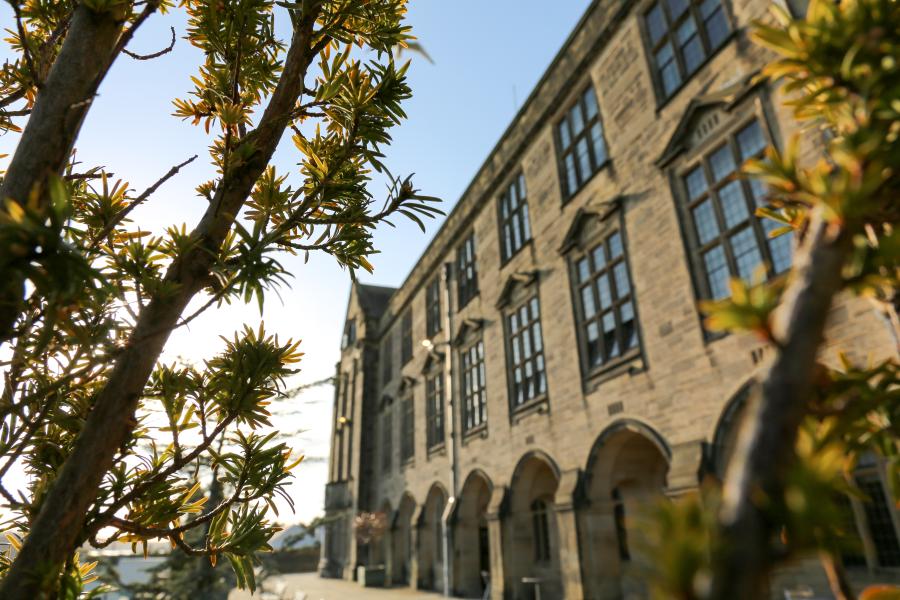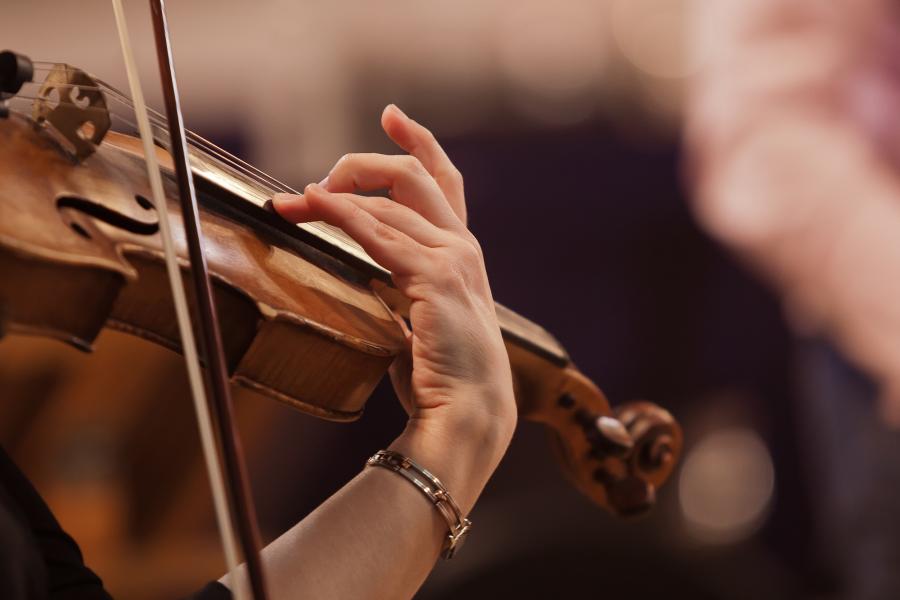Why Study Music ?
At Bangor you will part of a vibrant community of composers, scholars and musicians from all over the world, benefitting from the opportunities to share ideas and creativity across different modes of musical activity. Our facilities are world-class, including five state-of-the-art electroacoustic studios, unique archival and library collections, 24-hour practice facilities, superb instruments, and magnificent concert halls. You will be taught and supervised by world-renowned musicologists, composers and practitioners, and will enjoy intellectual stimulation from visiting speakers and artists. Outside the course, you can join any number of our choirs, orchestras and other ensembles, and you can benefit from the many opportunities open to you as a member of a lively traditional university.
Student Experience
Our Postgraduate students talk about their experience at Bangor university and share advice on why you should consider studying Music Bangor University.
00.00- 06.58
My name is Dai Mito, and I studied composition and sonic art.
00:06.58 - 00:13.580
I really enjoyed making many musics, especially movie music, for silent movie.
00:13.58 - 20.580
In my opinion, there are many good environment, such as Piano room, Studio
00:20.58 - 00:27.180
Many books in the library. It's really helpful for my studies.
00:27.18 - 00:33.18
I have to make some specific music and sound effects.
00:33.18 - 00:35.18
It's really helpful for my thinking.
00:35.180 - 00:42.18
How to make special Movies or TV video games.
00:42.18 - 00:44.18
I would like to work for the editing, recording, making music for Japanese Broadcasting Corporation, like BBC in UK
00:44.18- 00:59.28
This is a big dream.
Career Opportunities in Music
Masters-level study at Bangor is the ideal springboard for a specialist career in music. Our Masters graduates have gone on to work as professional composers, performers, educators, writers, broadcasters, researchers, and managers in a range of arts organisations. Many have gone on to PhD study, and from there to prestigious careers in universities and conservatoires across the world.
Our Research in Music
Our research active staff members follow a wide range of research interests in musicology, composition and performance. In the last RAE (2014), almost a third of our research outputs were rated as 'World-leading', and overall 81% of our research activity was assessed as 'World-leading' or 'Internationally Excellent' (i.e. given the top two grades of 3* and 4*).
Research Strengths/Specialisms
Our staff conduct research and provide PhD supervision in Musicology,Composition, Performance, and Health and Well-Being. Within these broad designations, we have key strengths in:
- Early Music
- 20th and 21st century Music
- Music Editing
- Welsh Music
- Acousmatic and Electroacoustic Composition
- Film Music
- Sonic Arts
- Contemporary Performance
- Interactive Performance with Electronics.
Most staff members are active in more than one field and often engage with research projects with colleagues working in other disciplines.
You may also be interested in these related subject areas.
You may also be interested in these related subject areas.

